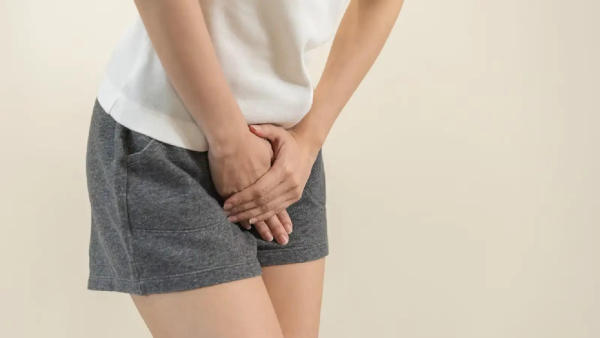
Genital warts are usually caused by the human papillomavirus (HPV), a common sexually transmitted infection (STI). Genital warts look like small, raised bumps on or around your genitals (vagina) and anus.
Pain or burning sensation in the vagina, rashes or redness may appear on the skin around the vagina. Image: AdobeStock
Genital warts are also called genital warts. Although rare, they can be extremely dangerous. Genital warts are usually caused by the human papillomavirus (HPV), a common sexually transmitted infection (STI). Genital warts look like small, raised bumps on or around your genitals (vagina) and anus.
Anyone can get genital warts, but they most commonly affect people between the ages of 17 and 33. Research estimates that 10% to 20% of the general population has the type of HPV that can cause genital warts. But only about 1% of people with HPV develop warts.
If you are not aware of this problem, then through this article we will tell you all the necessary information related to genital warts. Dr. Mitul Gupta, Senior Consultant, Obstetrician and Gynecologist, Cocoon Hospital, Jaipur has told about genital warts, so let's know about this.
Vaginal warts are a type of infection in the vagina and anus, which is caused by human papillomavirus (HPV). These warts can appear on the inner and outer parts of the vagina. It is very important to pay attention to their symptoms and get them treated at the right time.
Not everyone with an HPV infection has the specific type or strain of HPV that causes genital warts. Most people who develop genital warts have HPV type 6 or type 11. It's also important to note that 90% of people with these two types of HPV don't develop any symptoms, according to the National Library of Medicine.
According to the doctor, the symptoms may include the appearance of small bumps or lumps in the vagina, abnormal bleeding or discharge from the vagina, pain or burning sensation in the vagina, rashes or redness on the skin around the vagina. Bumps of skin color or darker color (cauliflower-like bumps), such bumps are usually painless, but can sometimes cause itching or burning.
Vagina
Labia
Service
Penis Scrotum
Anus
Waist
Upper thigh
According to Dr Mitul Gupta, “There are over 100 types of HPV, two of which—types 6 and 11—cause 90% of cases of genital warts. In most cases, your body’s immune system is able to keep the virus at bay, preventing the development of genital warts.”
HPV is an STI, which means it's mainly spread through sexual contact with someone who has the infection. It usually takes a few weeks to several months after you get the virus to develop genital warts or other HPV symptoms.
Vaginal sex
Oral sex
Anal sex
Skin-to-skin contact
Sharing sex toys
HPV can be transferred from a biological parent to a child.
While anyone can get genital warts, some people have a higher risk of experiencing symptoms. Risk factors for genital warts caused by HPV include:
Being between 17 and 33 years of age
Being female at birth
Smoking tobacco
History of HPV infection
Dr Mitul Gupta explains, “Vaginal warts are usually treated by examining the vagina and taking a sample of the warts. The doctor may use a speculum to check for the presence of warts in the vagina. Additionally, a sample of the warts may be sent for testing to confirm the presence of HPV.”
“The patient is then treated with cryotherapy, laser therapy, surgical excision and antiviral drugs. Therefore, it is very important to understand their symptoms and consult a doctor at the right time.”
HPV is an STI, so abstaining from any sexual activity will protect you from getting the disease in the first place. Image: AdobeStock
HPV is an STI, so abstaining from any kind of sexual activity will protect you from getting the disease in the first place. It is not always possible to avoid having sex. So use condoms or dental dams, i.e. participate in safe sex, to reduce the risk of getting or transmitting the infection.
“Also get the necessary vaccines to prevent the infection from developing. Gardasil is a specific vaccine that is effective against HPV 6 and 11 – so if you want to get it, talk to your doctor for more information and to find out if this vaccine is right for you.”
Weak immunity increases the risk of developing HPV. It is said that making some lifestyle changes can help boost immunity.
Eat plenty of fruits, vegetables, lean protein and whole grains. Avoid foods rich in saturated fat, cholesterol, salt and sugar. Make it a habit to do 150 minutes of light to moderate exercise every week. Also get at least seven hours of sleep every night. Limit tobacco use and avoid smoking.